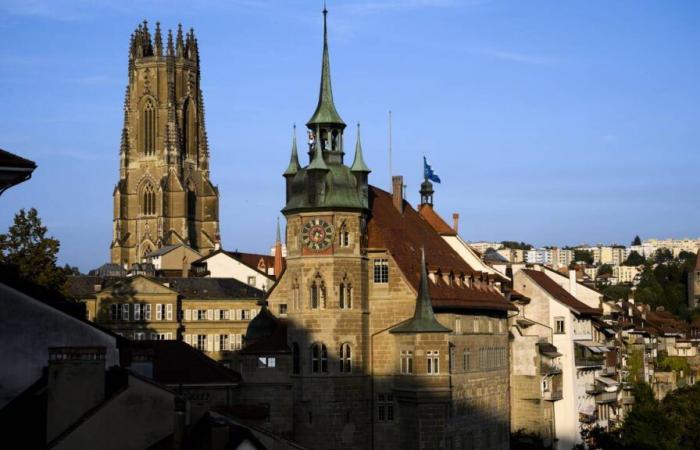
“A maneuver by the German-speaking lobby”
“The maneuver does not hide the desire of the German-speaking lobby, the majority within the Municipal Council, to impose the recognition of German as the second official language of the city,” notes the CRPF, for which the project had experienced a blow. stop with the failure of Greater Fribourg. The association, however, remains on its guard.
From now on, the executive “does not contest the current status of French as the only official language of its commune but, invoking its history, its geographical position and its status as the capital of a bilingual canton, it believes that it can very well be provide a logo in two languages,” writes the CRPF.
She notes that the debate comes at a time when the “long-awaited” cantonal law on languages will soon be put out for consultation. The text should define the official language of each municipality, the conditions under which a change of linguistic status can occur and the procedure to follow.
The executive defends itself
The Municipal Council, for its part, defends its position. Beyond its status as the capital of a canton with a quarter of German speakers, it says it is “convinced that bilingualism is a wealth to be cultivated”, according to comments recently reported in La Liberté by the trustee Thierry Steiert, himself bilingual. even.
The executive “is therefore particularly sensitive to the joint use of the two cantonal languages in its communication,” explains the elected official. He is also being urged by the General Council to modify the visual identity. A postulate, voted by 55 votes to 1 with 4 abstentions in 2022, requested him to make this logo bilingual.
In 2013, when the Municipal Council unveiled a new graphic version, also exclusively in French, the legislature opposed it and almost unanimously called for a bilingual logo. The current change project required the inclusion of 50,000 francs in the City’s 2025 budget.
Pragmatic bilingualism
Officially French-speaking, the commune applies “pragmatic bilingualism” on a daily basis, translating its official documents and ensuring that its 1700 municipal newspaper is written in French and German. And this even though the proportion of German speakers has declined drastically over the past 30 years.
At the end of 2023, 85.15% of the population established and staying in Friborg wanted to receive their correspondence in French, while 14.85% had opted for German. The fact remains that “the city has been located on the border of languages since its foundation,” argues Thierry Steiert. As a reminder, it has some 38,000 inhabitants.





